What If Nike’s Logo Meant Food For The Poor?
WHAT IF NIKE’S LOGO MEANT FOOD FOR THE POOR? IT DOESN’T, BUT WHAT IF? (ISSUE 138)
By Diane Gold
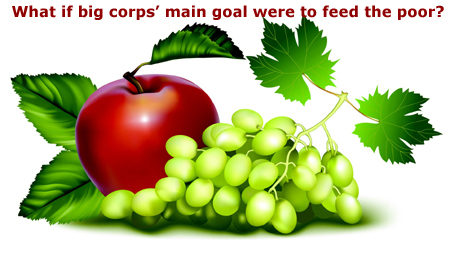 What if Nike’s logo meant food for the poor plus water, clothing, shelter, health care? Or Apple’s or ExxonMobil’s? What if these multinational corporations’
What if Nike’s logo meant food for the poor plus water, clothing, shelter, health care? Or Apple’s or ExxonMobil’s? What if these multinational corporations’
“primary goals were to clothe and feed the world’s poor in environmentally beneficial ways?”

This quote is from John Perkins’ Confessions of An Economic Hit Man who worked for powerful non-governmental United States companies whose job it was to get contracts with greedy leaders to use US firms to build electric grids in poor developing countries causing unsustainable debt through bank loans that had to be paid back, through default, by giving US land access to house military bases or discounts to access natural resources like oil.
IMPORTANT: MISSION OF THIS ARTICLE
Although existing multinationals may not change their mission from money and power to ethics and humanitarian concern, WE CAN build companies whose logos symbolize provision of food, water, clothing, shelter and health care to the poor as well as other companies who teach us, the poor included, self-sufficiency. We are not waiting for any company named in this article. We are collaborating: people, strategies, creativity and technology. This includes you and me, so let us be creative now; for it is time to build the concept.
IMAGINE
Imagine Nike 2.0 Corporation, worth the $18 billion it is now, focusing its primary attention on helping people get adequate and healthy food, clothing and shelter. And all their artists, designers, scientists and sports doctors who know health, shoes, clothing and style; all their marketers and advertisers who know how to create a market and spread the word would be working to this end.
 Imagine Apple 2.0 Corporation, worth the $500 billion it is now, focusing its primary attention on helping people get adequate and healthy food, clothing and shelter. And all their artists, designers, technicians and computer scientists were putting full effort into creating the best ways to feed, hydrate, clothe, care for and house everyone adequately.
Imagine Apple 2.0 Corporation, worth the $500 billion it is now, focusing its primary attention on helping people get adequate and healthy food, clothing and shelter. And all their artists, designers, technicians and computer scientists were putting full effort into creating the best ways to feed, hydrate, clothe, care for and house everyone adequately.
School children the world over would learn that the logos of these major companies meant safety from suffering because the major portion of these multinational companies had one focus: caring for the human condition.
Imagine if even 20% of the efforts of these companies was spent on ending the suffering we know exists from lack of food, clothing, shelter and health care. It would take a New York minute (this is fast) to be able to use these fine minds, already employed and experienced, to create workable strategies and technology that ethically insured care for everyone.
BEING CIVILIZED
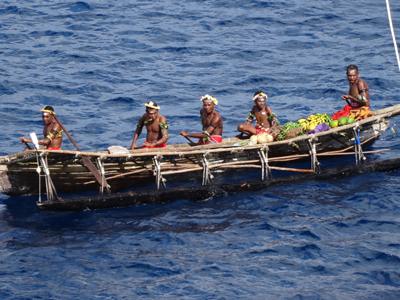 What does it mean to be civilized? Does it mean being more sophisticated by wearing upscale and fancy clothing while we pillage the environment to get raw materials to manufacture modern comforts OR does it mean living sustainably without taking more than is necessary for community survival while insuring the rebirth of the resources used for survival?
What does it mean to be civilized? Does it mean being more sophisticated by wearing upscale and fancy clothing while we pillage the environment to get raw materials to manufacture modern comforts OR does it mean living sustainably without taking more than is necessary for community survival while insuring the rebirth of the resources used for survival?
I just watched several movie clips about tribes that have not been very touched by “society,” as we of the written word know it. The most “untouched” tribes use what they need, then move their group further down within their tribe’s territory so that the earth can replenish itself. These untouched societies are an inspirational example of how to live, environmentally. Supposedly unsophisticated and less advanced, they live with respect for the earth and its resources.
What happens to us when we get the taste of wanting more? More adornment, more land, more drugs, more food, more power, a bigger house, car, office building, bank account? How does consumerism take over our brains? The answer is simple, although not so simple. It is society’s teachings.
We do trigger certain neurotransmitters in the brain (hormones), in some ways similar to the craving for external things is mostly a whim with no thought teaching ethically and being ethical. We can always run over someone who is weaker. Is this civilized?
MULTINATIONALS WORKING FOR THE GREATER GOOD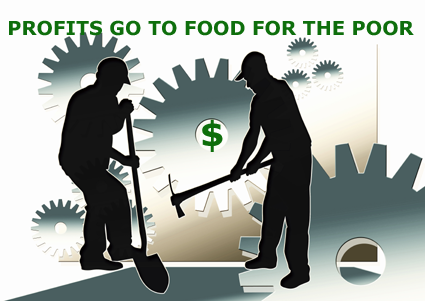
Back to the “solution” topic. So let’s say we had these multinationals giving part of their profit to food for the poor, including water, clothing, shelter. health care, not on a random donate basis, but as part of their corporate by-laws. Wouldn’t that fix the suffering, the hunger, the lack of health care? YES, it would.
Wouldn’t living less by manipulation be a good thing for our collective consciences? Wouldn’t we all be more productive because of it, rather than having to be burdened by the weight of knowing we are achieving profit through manipulation of developing countries, individuals or circumstance?
If we figured that among the top 22 companies that made over $100 billion in annual revenue in 2012, 2013 or 2014; we’d have $3.56 trillion dollars in revenue (Financial Times, 2012). If we calculate the profit at the lowest amount I found for any one of them, that’s 3% (according to Forbes’ World’s Biggest Public Companies as of May, 2014). That leaves $106 billion dollars.
If we take 10% of that as per the old British tithing system of one-tenth of the whole, that leaves $10 billion dollars. That would barely make a difference. In the US, alone, according to census.gov, it would take $175 billion to bring every American up to the poverty level.
But if we use the high number of 10-20% profit, common with multinationals, we get $356 billion or $713 billion, each, if divided by 10% achieve $35-$71 billion.
That’s a start and can change our mindsets as to our responsibility for each other. Plus we have to add in all the other companies that make between $1 and $99 billion dollars that I did not include.
Or what if each company making over $1 billion 20%-50% of its profit every other year to helping others. That would truly reduce suffering.
As John Perkins says, again in his Confessions Of An Economic Hitman,
“We must commit ourselves absolutely and unequivocally to shaking ourselves and everyone around us awake.”
What he means is it’s important to let people know that there is manipulation of developing countries who have US engineering firms arrange loans for them to build infrastructure for modernization, only to have the loans end up crippling the countries with debt as their leaders become wealthy.
CONCLUSION
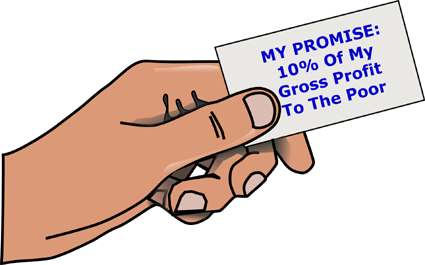 The answer is not as mind boggling as I thought it was. It’s right in front of you and me. It’s tithing, an old English unit meaning one-tenth of something. Much of the developing country manipulation could be monitored, and every corporation that made over one billion one hundred eleven million dollars would be required to give 10% of its gross profit to those in need for food, clothing, shelter, water and health care. The collector of this profit would have to be an independent agent, a non-government, non-profit establishment that published all incoming and outgoing funding to the public.
The answer is not as mind boggling as I thought it was. It’s right in front of you and me. It’s tithing, an old English unit meaning one-tenth of something. Much of the developing country manipulation could be monitored, and every corporation that made over one billion one hundred eleven million dollars would be required to give 10% of its gross profit to those in need for food, clothing, shelter, water and health care. The collector of this profit would have to be an independent agent, a non-government, non-profit establishment that published all incoming and outgoing funding to the public.
One other caveat would be necessary. Any US companies doing business with developing countries would be responsible to fund 10% of their gross income back to these developing countries if these developing countries defaulted on their debt after the company engineered new. Also, projects done by US companies in developing countries would have to be posted in a daily column, like the horoscope or the ad necessary to be placed before a US citizen can hire and sponsor a foreign domestic worker.
These two items are food for thought and could make the change, although it’s difficult to see infrastructural deals with developing countries until these countries are already defaulting on their debts, some years later.
ACTION STEPS
Here are several action steps that may be helpful.
1) Do some research, and decide on a cause to fund, or microloan to give if you had extra money.
2) For the next month, take 10% of your net salary and place it in a separate bank account or in a jar marked food for the poor. If you work for yourself, calculate your gross profit for the month, and give 10% of that. See how it feels to be without this income.
At least, we’re not living on $1.25 a day.

3) Once a week, the money in the separate bank account or jar to your favorite place. I know it might burn because we had just saved up enough to buy something important to us, which we will not have to sacrifice. But, as Rob Schneider says in Water Boy,
“You can do it!”
This will give each of us the experience akin to the multinationals. We don’t want to part with the money, but we can. Once we do it and realize we are helping others with it; we will adjust to it.
4) Evaluate whether you can continue to do steps 2) and 3) for another month or two. If yes, do it. If it’s not something you can continue, you might want to think about using that money for long term care insurance since longtermcare.gov suggests that 70% of over 65-ers will need it. And the younger we are when we get it, the more affordable it is. Of course, if we eat well with regard for eating a balanced plant-based diet, this statistic may turn out to be quite high.
5) Pass on this experiment and the general concept for the major players. It takes some getting used to. But, so did the first time our society began teaching that it was OK to bend our ethics.
![]()
If you wish to share your story, please hit reply in your email program to be contacted.
![]()
FEEDBACK
We value your feedback very much.
Please leave a comment below.
Please LIKE us on the website
and at WarriorsOfWeight on Facebook.
You can also follow us on
Twitter @warriorsoweight.
Thanks.
![]()
DIANE GOLD, PUBLISHER AND AUTHOR
Diane Gold, Founder of Warriors of Weight, Turning Habits Into Health, is a mentor in tai chi, kung fu and meditation, a music, fitness and stress expert, dedicated mom, studying plant-based nutrition, conflict resolution and habit change with an internet show about health and peace making, Tuesdays at 2 pm, HERE.
She believes it’s her duty to help some others. She has been able to pick the circumstances, but there is much to do. She says,
“My eyes have been opened by John Perkins and his discussion of his life as an economic hit man. In 1968, while at a community college for 6 months, I joined a protesting group because I believed in democracy. We talked about big business and that the War In Vietnam was wrong, but I had a minimal view of the big picture, until now. I knew big business controlled politics. I didn’t know that bankers and engineering firms could control resources, countries and war, until now.
.
“I am grateful to have my eyes open. I am saddened that my beautiful United States has not developed a system of checks and balances to prevent the corporate mindset from overstepping its ethical boundaries.
“We are an ethical nation. Each of us individually, for the most part, is ethical. When we stand as a group, and each of us steps slightly over the ethical line, disaster hits. And we fall into the quagmire of personal deception. Let us understand why other countries see us as imperialistic, those words I remember from 1968 and why so many citizens in developing countries know about the International Monetary Fund or the World Bank and how these institutions tried to cause debt or did.
“When I told one of my best friends from the Dominican Republic about my having read Confessions Of An Economic Hit Man, she acknowledged having to combat the grasp of these banking institutions on the Dominican Republic.
“We are our sisters’ and brothers’ keepers. Let us act that way from this point on!”
“Finally, let us all take good care of ourselves because we are so worth it!”
![]()

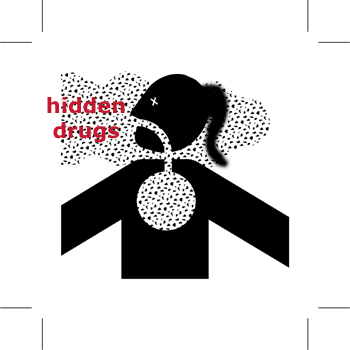
 I finished the test with no major reactions and went on my merry way, although I felt violated. Almost immediately after leaving the medical office, I started feeling speedy. And then more speedy, and then more speedy, to the point where I was sweating with my heart’s racing; I knew I was sick and was having a reaction to albuterol.
I finished the test with no major reactions and went on my merry way, although I felt violated. Almost immediately after leaving the medical office, I started feeling speedy. And then more speedy, and then more speedy, to the point where I was sweating with my heart’s racing; I knew I was sick and was having a reaction to albuterol.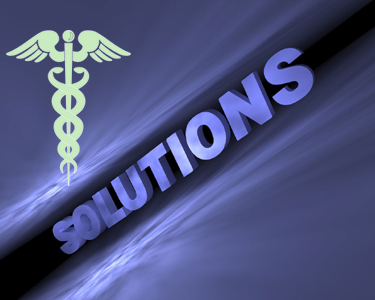 Since I lived, my mind started to run away with me, and I thought about running to get my medical records for the attorney. I calmed down and realized a much better solution instead of pointing fingers, blaming and taking to the legal system I so revere.
Since I lived, my mind started to run away with me, and I thought about running to get my medical records for the attorney. I calmed down and realized a much better solution instead of pointing fingers, blaming and taking to the legal system I so revere.
 Although the Hippocratic Oath, taken by every MD, includes keeping oneself away from seduction; the biggest seduction and the one most difficult to see as we are being seduced is the seduction of the ego, thinking we are the skilled, the almighty and the awakener with a better solution than the patient. The Osteopathic Oath mentions retaining the respect of the patient. If we are filled with ego and if we disrespect our patient’s rights, how are we fulfilling our oath?
Although the Hippocratic Oath, taken by every MD, includes keeping oneself away from seduction; the biggest seduction and the one most difficult to see as we are being seduced is the seduction of the ego, thinking we are the skilled, the almighty and the awakener with a better solution than the patient. The Osteopathic Oath mentions retaining the respect of the patient. If we are filled with ego and if we disrespect our patient’s rights, how are we fulfilling our oath?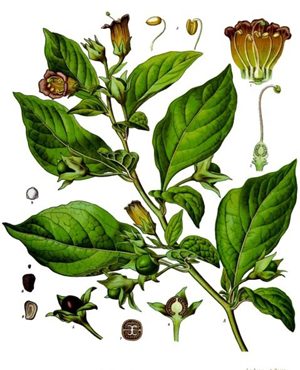 In conclusion, it’s important to be aware that the doctor is a consultant from whom we can hear expert opinion. S/he has studied hard to be able to evaluate a certain brand and branch of medicine. Unfortunately, the doctor who has studied Eastern medicine, Western medicine, Native American medicine, Latin American plant medicine and international tribal medicine is in the best position to give medical guidance; but I don’t know of any who have all this training.
In conclusion, it’s important to be aware that the doctor is a consultant from whom we can hear expert opinion. S/he has studied hard to be able to evaluate a certain brand and branch of medicine. Unfortunately, the doctor who has studied Eastern medicine, Western medicine, Native American medicine, Latin American plant medicine and international tribal medicine is in the best position to give medical guidance; but I don’t know of any who have all this training.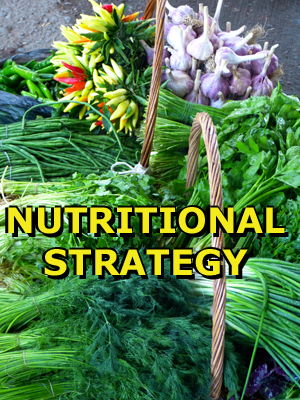
 Wouldn’t it be nice if the plant based food industry were a cooperative in itself and could get a direct benefit from creating such a course for medical professionals the way pharmaceutical companies benefit directly from courses they give on their new drugs as solutions for specific diagnoses.
Wouldn’t it be nice if the plant based food industry were a cooperative in itself and could get a direct benefit from creating such a course for medical professionals the way pharmaceutical companies benefit directly from courses they give on their new drugs as solutions for specific diagnoses.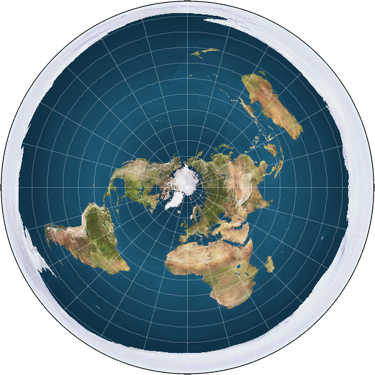 When we say, “The World Is Flat,” people look puzzled because our current perception of truth is different from this. But, at one time, this was current thought. This article aims to show how, with new or updated information, what we used to perceive as true is replaced by a new perception, which may or may not be what truly exists in the real world and how through mis-education or swarm mentality, we may not be seeing the real truth, supporting what is ethical and being the best that we can be.
When we say, “The World Is Flat,” people look puzzled because our current perception of truth is different from this. But, at one time, this was current thought. This article aims to show how, with new or updated information, what we used to perceive as true is replaced by a new perception, which may or may not be what truly exists in the real world and how through mis-education or swarm mentality, we may not be seeing the real truth, supporting what is ethical and being the best that we can be. Overwhelming evidence to the contrary appeared. Navigational instruments were using more sophisticated instruments to calculate distances, Magellan’s crew circumnavigated the world, (Magellan died before the culmination of the voyage in 1521), student education was more accurately based on scientific evidence rather than perception.
Overwhelming evidence to the contrary appeared. Navigational instruments were using more sophisticated instruments to calculate distances, Magellan’s crew circumnavigated the world, (Magellan died before the culmination of the voyage in 1521), student education was more accurately based on scientific evidence rather than perception.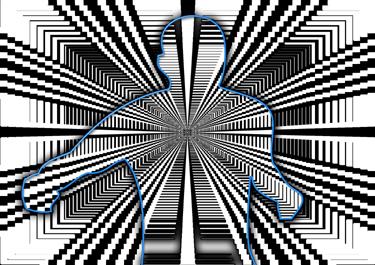 We each have mixed perceptions about getting ahead. We each define our own ethical lines. Some of us believe we have to go about excellence through the bureaucratic systems that exist within multinationals, (such as corporations being friends with media outlet owners who protect bad stories from coming out of the friend multinational, who are friends with politicians who pass laws
We each have mixed perceptions about getting ahead. We each define our own ethical lines. Some of us believe we have to go about excellence through the bureaucratic systems that exist within multinationals, (such as corporations being friends with media outlet owners who protect bad stories from coming out of the friend multinational, who are friends with politicians who pass laws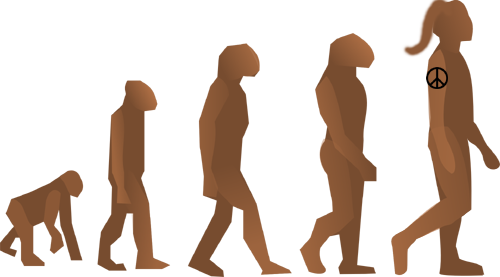 Others of us see the vision of evolving into peaceful or cooperative coexistence, not from waving peace flags , but from joining together and actively choosing companies whose ethic is not greed. This, in effect, would support a new network of companies that were not involved in greed as motivation but who joined together to build a new infrastructure to replace the old one described in the above paragraph.
Others of us see the vision of evolving into peaceful or cooperative coexistence, not from waving peace flags , but from joining together and actively choosing companies whose ethic is not greed. This, in effect, would support a new network of companies that were not involved in greed as motivation but who joined together to build a new infrastructure to replace the old one described in the above paragraph.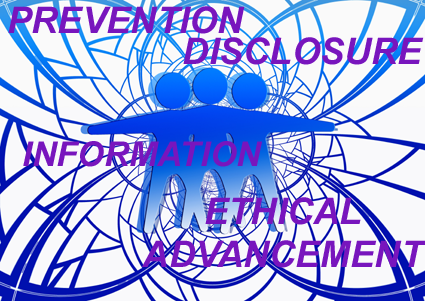
 Our habit of trusting media begins at a very young age. We are raised to become knowledgeable through reading and watching news reports, more or less based upon the habits of our parents or caretakers, and we have assignments in elementary school reporting on the current news events.
Our habit of trusting media begins at a very young age. We are raised to become knowledgeable through reading and watching news reports, more or less based upon the habits of our parents or caretakers, and we have assignments in elementary school reporting on the current news events.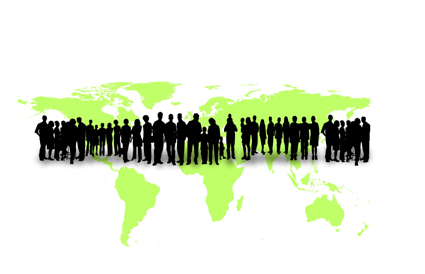 So how, in today’s world, do we make mistakes in trusting media?
So how, in today’s world, do we make mistakes in trusting media?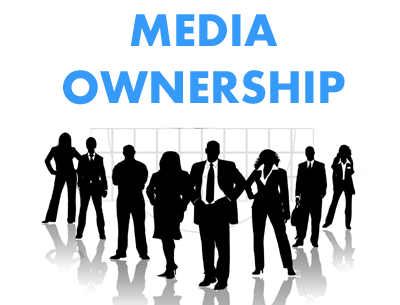 We all advocate for our own company, want it to thrive, want to give a good product or service, really want to do the right thing – to start. When we get so powerful that we are on the board of directors of lots of industries about whom our journalists might write; we might consider censoring what gets written.
We all advocate for our own company, want it to thrive, want to give a good product or service, really want to do the right thing – to start. When we get so powerful that we are on the board of directors of lots of industries about whom our journalists might write; we might consider censoring what gets written.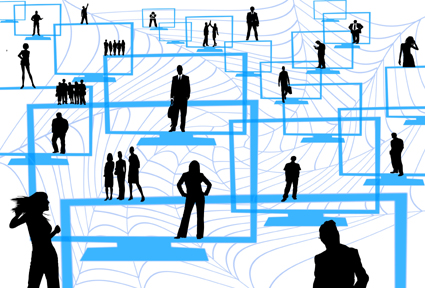

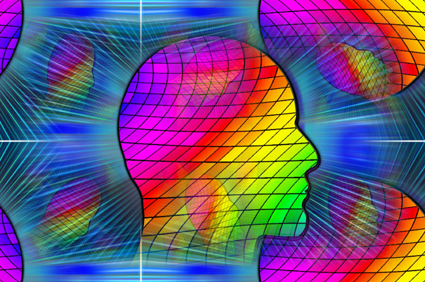
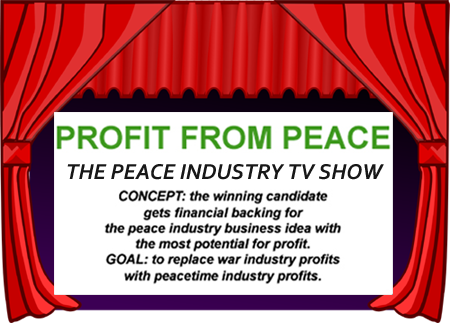 Profit From Peace is an ideal that has fallen through the cracks in discussions at the university level, in primary and secondary schools, across diplomatic and corporate tables. It’s not really in the back of our minds, yet, either.
Profit From Peace is an ideal that has fallen through the cracks in discussions at the university level, in primary and secondary schools, across diplomatic and corporate tables. It’s not really in the back of our minds, yet, either. Each candidate would pitch the business plan of her/his created company, including how to finance and manage it. The show would include role playing a board meeting run by the prospective director of the company.
Each candidate would pitch the business plan of her/his created company, including how to finance and manage it. The show would include role playing a board meeting run by the prospective director of the company.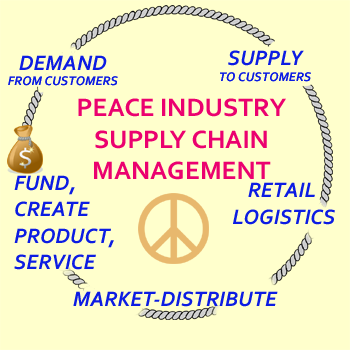 We already know how to make money from war. Military equipment, location and protection technology and gear, air, land and sea vehicles need manufacturing, technological assembly, fuel for transport, human personnel, financing up front to pay for the above, medical costs during and after war. We have mastered this art. Let’s explore another.
We already know how to make money from war. Military equipment, location and protection technology and gear, air, land and sea vehicles need manufacturing, technological assembly, fuel for transport, human personnel, financing up front to pay for the above, medical costs during and after war. We have mastered this art. Let’s explore another.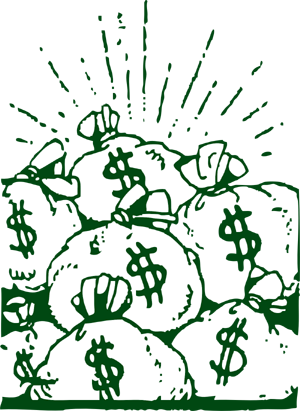 BUSINESS INVESTORS
BUSINESS INVESTORS 1)
1) 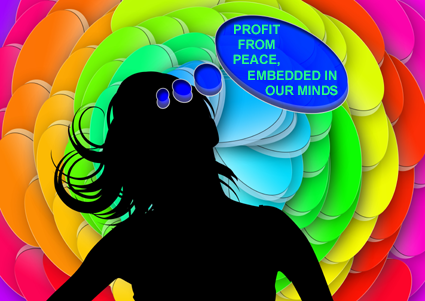 Hopefully, the profit from peace concept is now embedded in our minds. It can only grow as we talk and refine it. If we are consistent, don’t disrespect the profit position of war manufacturers and give them an alternative; we might have embarked upon something that will work.
Hopefully, the profit from peace concept is now embedded in our minds. It can only grow as we talk and refine it. If we are consistent, don’t disrespect the profit position of war manufacturers and give them an alternative; we might have embarked upon something that will work.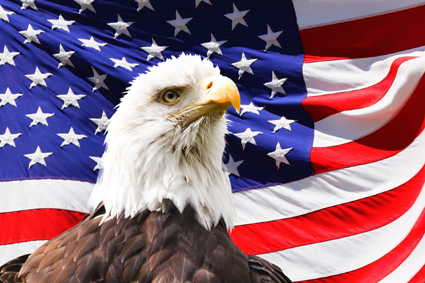 Our right to freedom is the biggest opportunity we have in our lives: the right to create, collaborate, recreate, befriend, congregate, speak out, choose, share, cooperate and vote. The United States was founded on these principles. So, it goes to say that when we the people use our precious system of justice to pass a law, this law is the expression of our voice and is a mirror into our use of our right to freedom.
Our right to freedom is the biggest opportunity we have in our lives: the right to create, collaborate, recreate, befriend, congregate, speak out, choose, share, cooperate and vote. The United States was founded on these principles. So, it goes to say that when we the people use our precious system of justice to pass a law, this law is the expression of our voice and is a mirror into our use of our right to freedom. As is common knowledge, the corporate giants including Monsanto, BASF, Dow, Dupont and Bayer, are the largest producers of GMO seeds, Monsanto-trait seeds being used in 80-90% of farming worldwide. Most on this list are connected with each of the food associations lobbying to stop the already passed legislation for GMO labeling. We have to ask,
As is common knowledge, the corporate giants including Monsanto, BASF, Dow, Dupont and Bayer, are the largest producers of GMO seeds, Monsanto-trait seeds being used in 80-90% of farming worldwide. Most on this list are connected with each of the food associations lobbying to stop the already passed legislation for GMO labeling. We have to ask,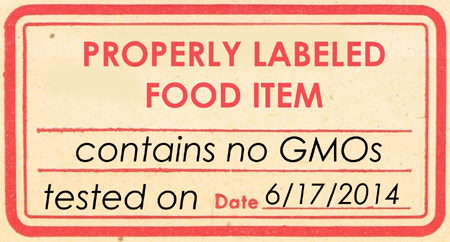 Whichever research we believe, shouldn’t we, the people, have the right to a properly labeled food item by our government so that we can decide using our right to freedom? I, for one, am not interested in using GMOs when I have the chance to decline them.
Whichever research we believe, shouldn’t we, the people, have the right to a properly labeled food item by our government so that we can decide using our right to freedom? I, for one, am not interested in using GMOs when I have the chance to decline them.
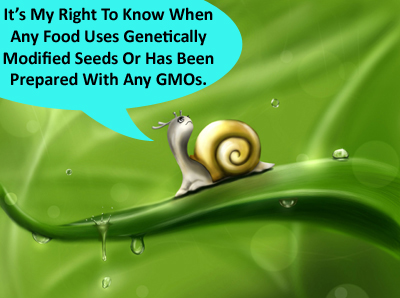

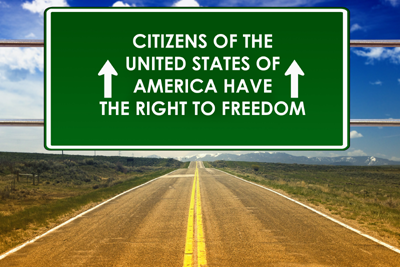 Whatever the method honoring the right to freedom with respect for the results of a vote, majority or any other democratic process; it is important to be aware of the process and its effect on the public, big business and other future projects. Let’s congratulate Vermont for being the first state with a GMO labeling law that does not depend upon laws passed by other states. If we believe it is the right way, let’s mention it on social networks. If we disagree with the disclosure (I can’t see what sense it would make not to label the food we eat, but…), we can do the research as to why so many people want to remove GMOs, starting with labeling them.
Whatever the method honoring the right to freedom with respect for the results of a vote, majority or any other democratic process; it is important to be aware of the process and its effect on the public, big business and other future projects. Let’s congratulate Vermont for being the first state with a GMO labeling law that does not depend upon laws passed by other states. If we believe it is the right way, let’s mention it on social networks. If we disagree with the disclosure (I can’t see what sense it would make not to label the food we eat, but…), we can do the research as to why so many people want to remove GMOs, starting with labeling them.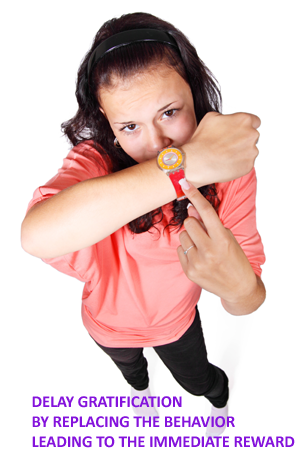 When we delay gratification, we use one skill which allows self-control: we replace the behavior that would have led us to the immediate reward. Whether we are young children or adults, it is the same strategy. Whether we can throw ourselves deeply enough into a new activity to control our behavior is different for everyone.
When we delay gratification, we use one skill which allows self-control: we replace the behavior that would have led us to the immediate reward. Whether we are young children or adults, it is the same strategy. Whether we can throw ourselves deeply enough into a new activity to control our behavior is different for everyone.
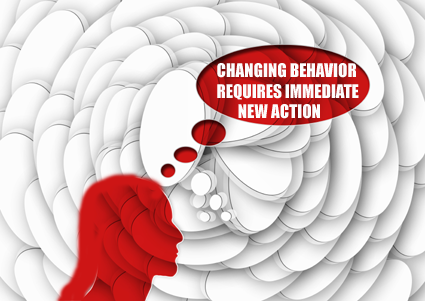
 The biggest downfall in the ability to delay gratification happens in the first 10 to 30 seconds after we have an urge: we haven’t planned for our replacement behavior or we need a cheerleading team to provoke our behavior change and don’t have one. We have ourselves. Of course, the goal is for us to create this gallery of cheerers within ourselves so that we can do what is best for our lives, immaterial of what our hormones tell us to do. This may take time.
The biggest downfall in the ability to delay gratification happens in the first 10 to 30 seconds after we have an urge: we haven’t planned for our replacement behavior or we need a cheerleading team to provoke our behavior change and don’t have one. We have ourselves. Of course, the goal is for us to create this gallery of cheerers within ourselves so that we can do what is best for our lives, immaterial of what our hormones tell us to do. This may take time.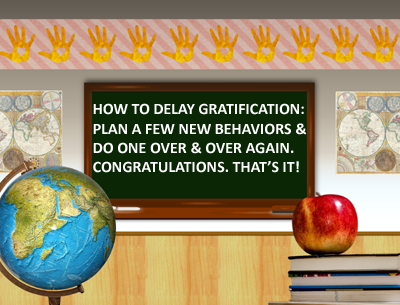
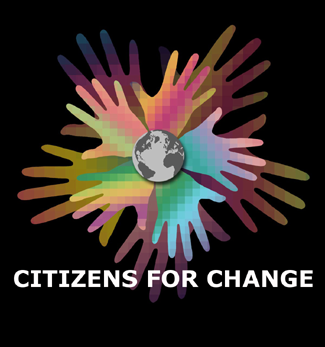 If we look at the predominant age group of people who know about GMOs and who just marched against the biggest seed and pesticide company that genetically modifies our food, we see lots of people between 10 and 40. This is great. It means that the more current generations are educated about food or are more savvy at realizing the mis-education they have gotten from food company’s who trade human health for profit. And the families who stand up against GMOs have children whom they have taught or who have been taught in school.
If we look at the predominant age group of people who know about GMOs and who just marched against the biggest seed and pesticide company that genetically modifies our food, we see lots of people between 10 and 40. This is great. It means that the more current generations are educated about food or are more savvy at realizing the mis-education they have gotten from food company’s who trade human health for profit. And the families who stand up against GMOs have children whom they have taught or who have been taught in school.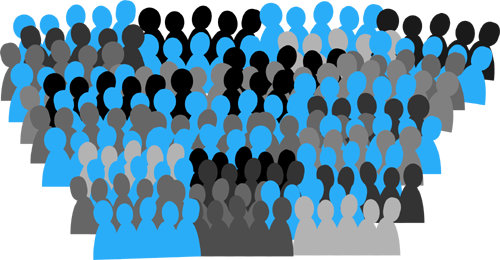 No matter what age, the time is now to stand together, jump together, march together, dance together, and educate together that genetic modification of food is not the way, while we still have other options. We can look at the great example of marchers against the big seed company, that took place the last Saturday in May, 2014, and be inspired – over 50 countries, over 400 coordinated marches.
No matter what age, the time is now to stand together, jump together, march together, dance together, and educate together that genetic modification of food is not the way, while we still have other options. We can look at the great example of marchers against the big seed company, that took place the last Saturday in May, 2014, and be inspired – over 50 countries, over 400 coordinated marches.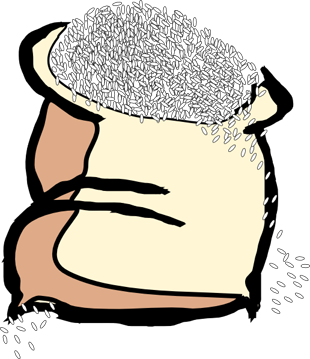 1)
1) 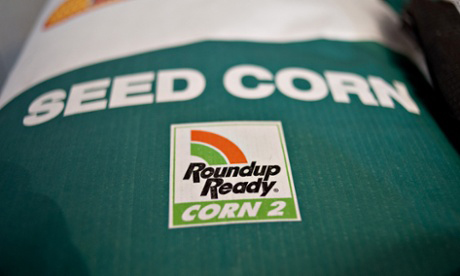 Luckily, we are citizens for change; and we see the need to label GMOs and ban them. Kudos to the State of Vermont for passing a bill that will require labeling of genetically modified anything by 2016. Hopefully, this action will not be politically undone.
Luckily, we are citizens for change; and we see the need to label GMOs and ban them. Kudos to the State of Vermont for passing a bill that will require labeling of genetically modified anything by 2016. Hopefully, this action will not be politically undone.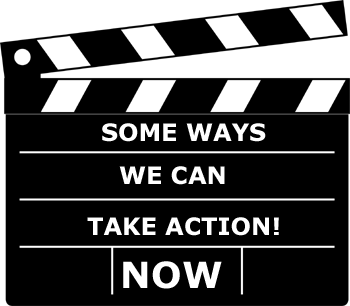 We are all citizens for change. We can uplift ourselves and move away from the status quo. We all need more knowledge of our food supply and what is best for our bodies and minds. Let not one day go by where we are not on the lookout for good information given with for humanitarian concern only. Let us also be aware of commercial information that may be manipulated to benefit its supplier, manufacturer, distributor or other profiteer. Our lives depend upon our proactivity, so, to follow, are some ways we can take action.
We are all citizens for change. We can uplift ourselves and move away from the status quo. We all need more knowledge of our food supply and what is best for our bodies and minds. Let not one day go by where we are not on the lookout for good information given with for humanitarian concern only. Let us also be aware of commercial information that may be manipulated to benefit its supplier, manufacturer, distributor or other profiteer. Our lives depend upon our proactivity, so, to follow, are some ways we can take action.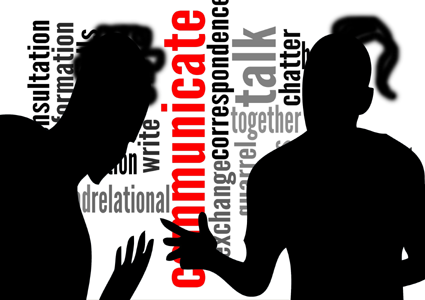
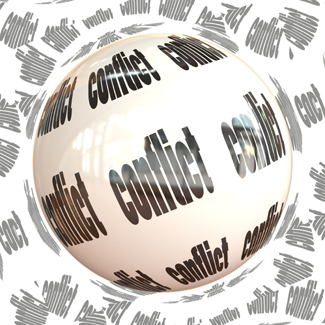 In all sectors that touch upon health care, there are conflicts of interest. We have the habit of ignoring them. In order to do research, we need money, so we sell products. These products may be less than perfect to save money and to make more. In order to live well, some of us may create partnerships and agree to job restrictions we never would have if we didn’t need the money. These are compromises. We all have made one. These are not unethical moves, in themselves. Ignoring the huge conflicts of interest that develop because of them is. Not making this disharmony common knowledge is!
In all sectors that touch upon health care, there are conflicts of interest. We have the habit of ignoring them. In order to do research, we need money, so we sell products. These products may be less than perfect to save money and to make more. In order to live well, some of us may create partnerships and agree to job restrictions we never would have if we didn’t need the money. These are compromises. We all have made one. These are not unethical moves, in themselves. Ignoring the huge conflicts of interest that develop because of them is. Not making this disharmony common knowledge is!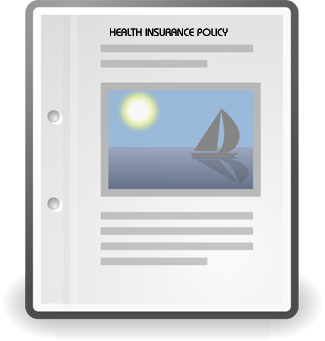 Health insurance companies are another sector that creates conflicts of interest. The cost of insurance-reimbursable health care is so high that these companies foster the habit that they are the only way and that they are required. True, I would not want to be without health care as an almost 65-year-old citizen, but I do want to honor these comments from Jon Raymond, founder of Out In The Streets Films, from his article The Sadism Of American Health Care,
Health insurance companies are another sector that creates conflicts of interest. The cost of insurance-reimbursable health care is so high that these companies foster the habit that they are the only way and that they are required. True, I would not want to be without health care as an almost 65-year-old citizen, but I do want to honor these comments from Jon Raymond, founder of Out In The Streets Films, from his article The Sadism Of American Health Care, Our doctors may be promoting a drug or treatment protocol so that they receive a bonus or good connection from a drug company or an insurance company. Most doctors will not promote what they don’t believe in; however their discussion of drugs from a company that favors them they give their patients urges other doctors to do the same, benefiting the original prescriber and the drug company. If the drug could have been replaced with exercise or good food, this non-drug strategy gets lost in the shadows.
Our doctors may be promoting a drug or treatment protocol so that they receive a bonus or good connection from a drug company or an insurance company. Most doctors will not promote what they don’t believe in; however their discussion of drugs from a company that favors them they give their patients urges other doctors to do the same, benefiting the original prescriber and the drug company. If the drug could have been replaced with exercise or good food, this non-drug strategy gets lost in the shadows.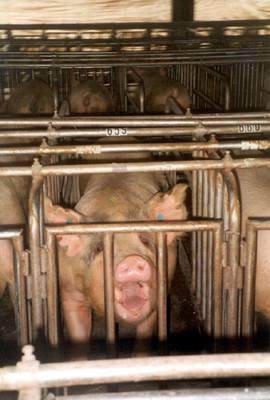 We might also consider the ethics of raising animals for slaughter, or, in the case of dairy cows, shortening their lives by 80% as long as cows who do not get milked by machine on a dairy farm or traumatizing pigs in tiny cages.
We might also consider the ethics of raising animals for slaughter, or, in the case of dairy cows, shortening their lives by 80% as long as cows who do not get milked by machine on a dairy farm or traumatizing pigs in tiny cages.
 Finally, although there are conflicts in finance and natural resource manufacturing, too, we will close with media conflicts. Journalists have to omit some news. They report what their corporate heads allow, which often coincides with the voices of their advertisers.
Finally, although there are conflicts in finance and natural resource manufacturing, too, we will close with media conflicts. Journalists have to omit some news. They report what their corporate heads allow, which often coincides with the voices of their advertisers.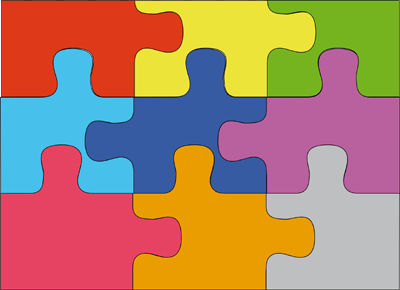 Know the conflicts of interest in health care, and eat well. Consider how funding drives decisions for all of us. Know that all our industries, factory farmers, health insurers, medical personnel and facilities, our research companies, government regulators are run by profit. And all the sectors fit together like a jigsaw puzzle.
Know the conflicts of interest in health care, and eat well. Consider how funding drives decisions for all of us. Know that all our industries, factory farmers, health insurers, medical personnel and facilities, our research companies, government regulators are run by profit. And all the sectors fit together like a jigsaw puzzle.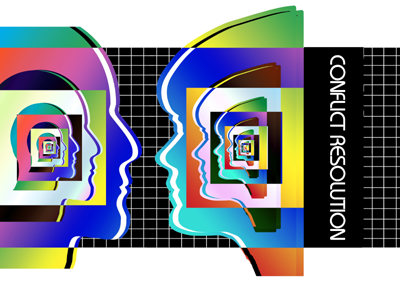
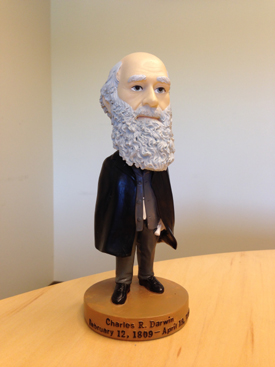 What makes the above quote a great definition is that Charles Darwin alludes to something similar in his Origin of the Species as did his predecessor, Jean-Baptiste Lamarck, 500 years before Darwin. They both arrived at the idea that traits can be passed down generationally even if they are acquired through acquired training of the previous generations. Another way of saying this would be that the offspring of parents who are trained in a certain behavior are born with the behavior and no previous training in the future generations.
What makes the above quote a great definition is that Charles Darwin alludes to something similar in his Origin of the Species as did his predecessor, Jean-Baptiste Lamarck, 500 years before Darwin. They both arrived at the idea that traits can be passed down generationally even if they are acquired through acquired training of the previous generations. Another way of saying this would be that the offspring of parents who are trained in a certain behavior are born with the behavior and no previous training in the future generations.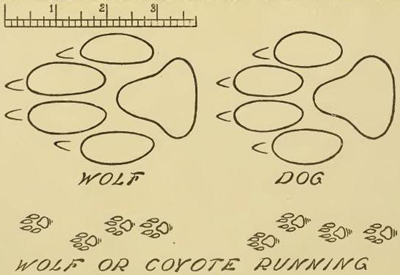 We can look at the domestication of one or two wolf species. The domesticated wolf became the dog, according to James Serpell, professor at University of Pennsylvania’s School of Vet Medicine in his 1995 The Domestic Dog. Through teaching the wolf pup of the wild wolf to be calm, gentle and social with humans; the offspring of the tamed wolf pups began to exhibit the gentler traits at birth, without any training.
We can look at the domestication of one or two wolf species. The domesticated wolf became the dog, according to James Serpell, professor at University of Pennsylvania’s School of Vet Medicine in his 1995 The Domestic Dog. Through teaching the wolf pup of the wild wolf to be calm, gentle and social with humans; the offspring of the tamed wolf pups began to exhibit the gentler traits at birth, without any training.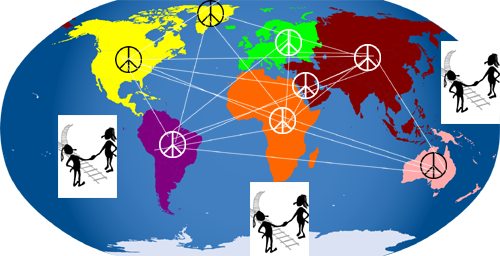 So, the way of our evolution has to do with the training we are given which, if ingrained in us well, can be passed down to our offspring or to their future generations from birth. What could exist is our own domestication, cultivating the habit of peaceful coexistence.
So, the way of our evolution has to do with the training we are given which, if ingrained in us well, can be passed down to our offspring or to their future generations from birth. What could exist is our own domestication, cultivating the habit of peaceful coexistence.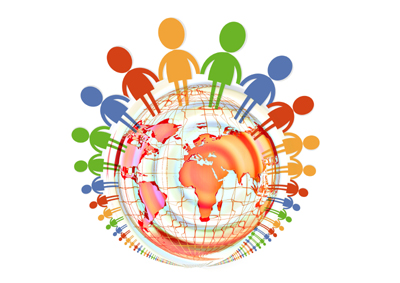 The point here is if we start role playing peaceful solutions to different circumstances when we are young, we will be very experienced at conflict resolution by the time we reach 25 when our voices can help run the world. We will recognize human rights violations and know how to use our voices against them using our peaceful methods. This means we may be interested in letting go of our old ways.
The point here is if we start role playing peaceful solutions to different circumstances when we are young, we will be very experienced at conflict resolution by the time we reach 25 when our voices can help run the world. We will recognize human rights violations and know how to use our voices against them using our peaceful methods. This means we may be interested in letting go of our old ways.





